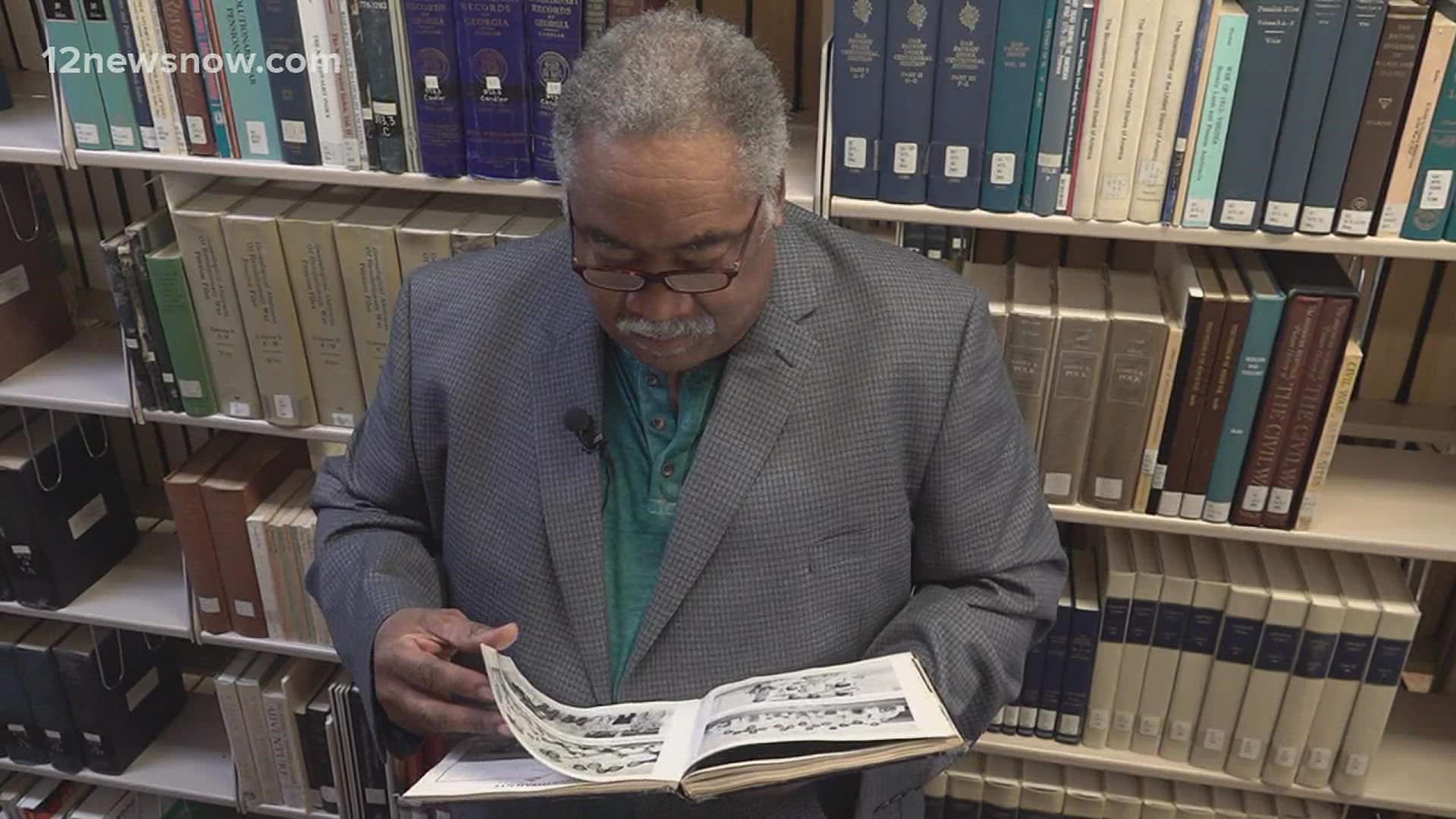BEAUMONT, Texas — Coins, stamps, and rocks are all common collections. One Beaumont man decided to collect something unique.
They say a collector's passion borders on the chaos of memories.
“Because of my interest in history. I've studied and read a lot, and even come into the libraries,” said Donald Bailey.
The Army veteran collects artifacts that document Beaumont’s Black history.
In his hand, he held a piece of what he has gathered in the last 50 years.
“I have a collection that was left to be my mother and my stepfather. And a lot of it is forgotten history,” Bailey said.
Born and raised in Beaumont, Bailey coined himself the "history doctor."
“Beaumont was part of the old castle system during the Jim Crow era. And it was just like most southern towns. If you were on a bus, you had to sit at the back of the bus. Your education and your job of choice were limited,” Bailey said.
It was limited until Lincoln Business College came around. Bailey collected the front cover of the original college handbook.
“Lincoln Business College. It was on Pine Street, and it had a psychology department, which my stepfather taught psychology over there.
With few paths into higher education, Lincoln Business College gave black people away in and a way out.
“When you finish business college, a part of the contract was finding you a job,” Bailey said.
He's also collected photos of long-standing buildings in the black community.
“This building right here behind Jackie Robinson, that the building right there. It's a church, but it used to be a store. 1948 and the building is still here,” Bailey said.
Bailey's collection has grown so big he's lost count.
“Well, I collect anything that interests me. Some things I've collected, and when I first got it, I don't even know why I kept it. But eventually, all of it has come together,” Bailey said.
Working full-time to pass along the oral history is pivotal to the next generation.
“I hate for us to repeat or the youngsters repeated you know because people my age and older, we're starting to fade away. You got to have some kind of guidance,” Bailey said.

